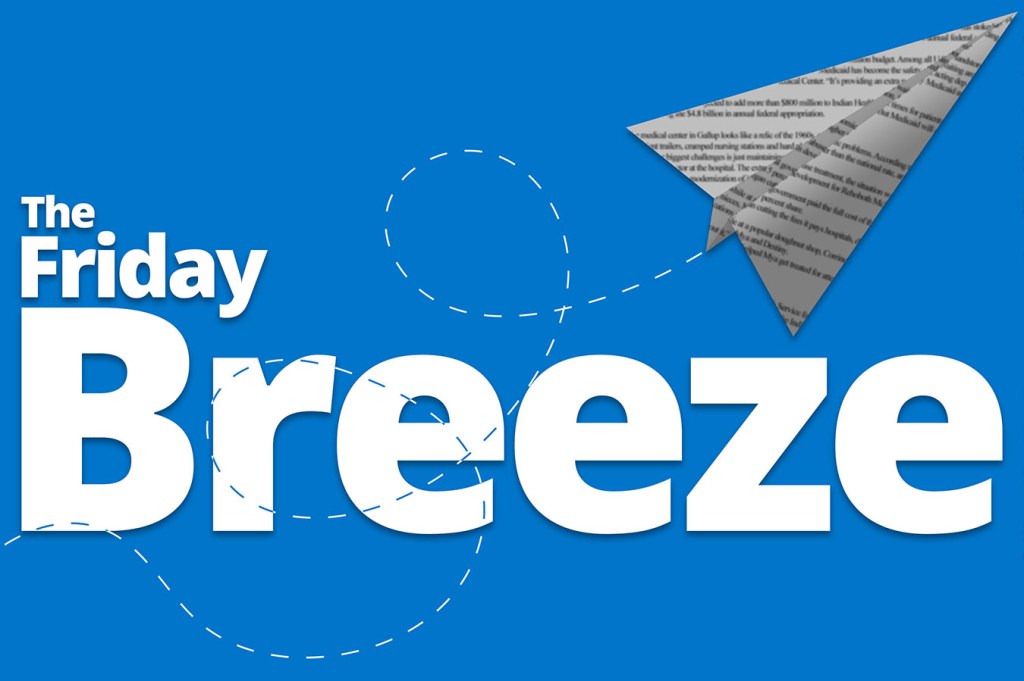Happy Friday, aka Day 28 of the government shutdown. We all might be getting a little shutdown-news fatigue, but this piece about the spouses of furloughed workers who have had it up to here with their husbands or wives being around all the time was a bright spot in a heap of gloom.
Speaking of gloom, let’s get to it.
The shutdown has hit Native American tribes harder than others because they rely heavily on federal funding for basic services — like running their health clinics. As the standoff drags on, there’s a real fear that members will not be able to get lifesaving medication, such as insulin or blood pressure drugs. “This is a crisis like we’ve never seen,” said Aaron Payment, a board member of the National Congress of American Indians, in Montana Public Radio’s coverage of the story.
The Washington Post: Tribes Face Food and Medicine Crisis As Shutdown Continues, Lawmakers Are Told
One furloughed worker who is rationing her insulin because she can’t afford to buy more told CNN that she was doing it because “the thought of having more debt was scarier than the thought of dying.” One night she went to bed with sky-high sugar levels and just “hoped to wake up.”
Food insecurity is a topic area that can sometimes fly under the radar in this country, but the shutdown is thrusting it into the spotlight. Worries about SNAP (the Supplemental Nutrition Assistance Program, commonly known as food stamps), school lunches and food banks highlight how many families are fundamentally struggling with hunger on a daily basis.
Politico: Next Shutdown Victim: School Lunches
A damning government watchdog report found that there may be thousands more young migrant children who were separated from their parents than the administration previously reported. That’s because there was a wave of separations back in 2017. They acted as somewhat of a test balloon for the “zero-tolerance policy” that eventually caused a deafening public outcry.
One of the scariest parts of the report? No one actually knows the total number of kids who were separated from their parents.
The New York Times: Family Separation May Have Hit Thousands More Migrant Children Than Reported
President Donald Trump’s attempts to relax rules on employers’ responsibilities for contraception coverage got a one-two punch in the courts this week. First, a federal judge blocked the rules for the 13 states (and D.C.) that were a part of the case in front of him. The very next day, that narrow decision was followed by a broader nationwide injunction. I’m going to go ahead and wager that this isn’t the last we’ve heard of the issue.
Reuters: Second U.S. Judge Blocks Trump Administration Birth Control Rules
Heading into a general-election season may seem like an odd time to rock the boat on health law premiums, but a new proposal from the Trump administration may do just that. The change, which officials say is necessary to adjust for inflated subsidies, could mean millions of Americans will be paying more for coverage next year. And we all saw how health care factored into the midterms.
The Associated Press: Trump Administration Proposes Higher ‘Obamacare’ Premiums
Drug pricing was absolutely center stage again this week on Capitol Hill as newly empowered Democrats fired their opening salvo against Big Pharma. Oversight and Reform Committee Chairman Elijah Cummings announced that he’s launching a wide-scale and in-depth probe on drugmakers, seeking information specifically about why prices have increased so dramatically on old drugs (among other things).
The Associated Press: House Dems Announce Sweeping Investigation Of Drug Pricing
Talking about block-granting Medicaid used to be all the rage, but as the Trump administration has given states more flexibility with waivers the topic has quieted down. Now, though, there are reports that the Centers for Medicare & Medicaid Services is quietly devising a plan to achieve the long-held conservative dream.
Any block grant proposal, though, faces both legal obstacles and pretty staunch opponents in Democrats, who have already vowed to fight any changes by “literally every means that a U.S. senator has.”
Politico: Trump Wants to Bypass Congress on Medicaid Plan
(Need a refresher on what Medicaid block grants are? KHN’s Shefali Luthra has your back: Everything You Need To Know About Block Grants — The Heart Of GOP’s Medicaid Plans.)
New court documents have revealed, in stunning detail, just how closely the prominent family that started Purdue Pharma was involved with its aggressive marketing strategies for OxyContin. Richard Sackler, one family member, said the debut of the painkiller should be followed by “a blizzard of prescriptions” to effectively bury the competition. And when the heat started turning up on the drug’s addictive qualities, Sackler directed workers to “hammer on abusers in every way possible” to shift blame for the epidemic to them.
Republican Sen. Rand Paul had to fend off some jabs this week when it was announced that he (an outspoken critic about socialized health care) was going to Canada for a surgical procedure. The issue was more about optics than anything else, though — Paul’s office confirmed that he will be paying out-of-pocket for his care.
Politico: Rand Paul Headed to Canada for Surgery, But Will Pay Out Of Pocket
In this fascinating story, The New York Times pulls back the curtain on the thriving gray market that exists for diabetes strips. People with insurance don’t pay that much for the strips, but they can be really expensive for anyone without it. There’s no law against reselling them, and so you get this wild marketplace that cropped up, as they tend to do, to meet the demand.
The New York Times: The Strange Marketplace for Diabetes Test Strips
If you haven’t gotten your flu shot yet, officials are reminding you that it’s not too late! Have a great weekend!







